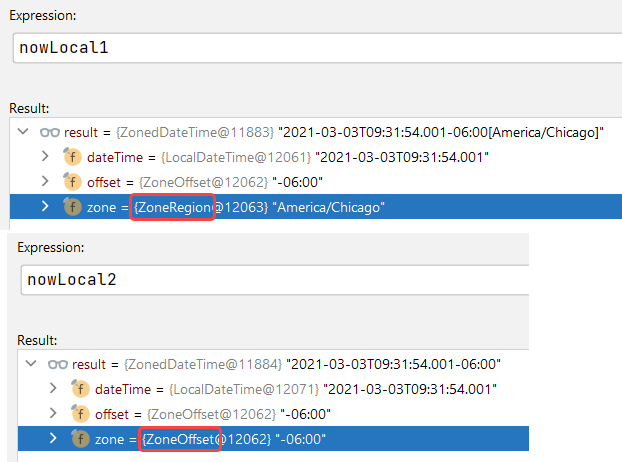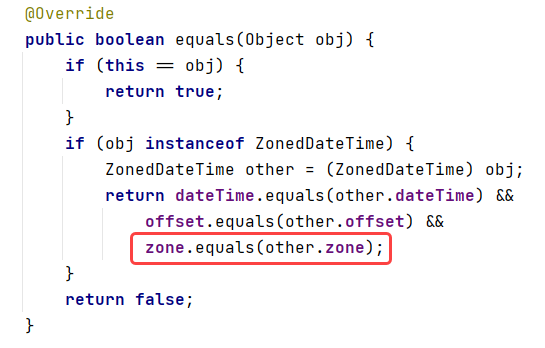I created two ZonedDateTime objects and I think they are should be equal:
public static void main(String[] args) {
ZoneId zid = ZoneId.of("America/New_York");
ZoneOffset offset = ZoneOffset.from(LocalDateTime.now().atZone(zid));
ZonedDateTime zdt0 = ZonedDateTime.of(2014, 8, 24, 21, 10, 1, 777000002, offset);
ZonedDateTime zdt1 = ZonedDateTime.of(2014, 8, 24, 21, 10, 1, 777000002, zid);
boolean equals = Objects.equals(zdt0, zdt1);
System.out.println("equals: " + equals);
}
In debugger I see that class of member of ZonedDateTime zone in first case is java.time.ZoneOffset and in second java.time.ZoneRegion and this is makes ZonedDateTime objects not equal. This is confusing... Any ideas?


